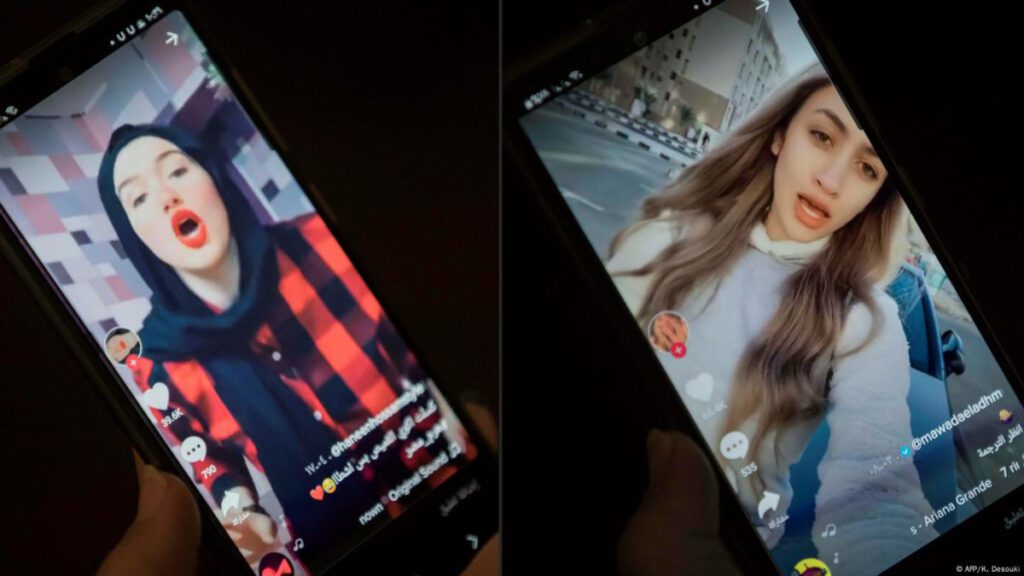Egyptian Teen TikTok Stars Face Arrests Amid Government Crackdown on Social Media Content
Authorities Target Influencers Over Alleged Moral Violations and Money Laundering
CAIRO – Egyptian authorities have recently detained numerous teenage TikTok influencers, accusing them of breaching family values and engaging in money laundering activities. Prosecutors are reportedly investigating at least ten cases, imposing travel restrictions, freezing assets, and confiscating electronic devices linked to the suspects.
The crackdown marks a significant shift in Egypt’s approach to social media, which has long served as a rare outlet for young people to express themselves beyond the confines of state-controlled media. Critics contend that the arrests are less about legal violations and more about exerting control over digital platforms. “There is a law that criminalizes indecent acts,” said lawyer Marawan al-Gindy. “What is needed are clear, consistent regulations rather than arbitrary enforcement.”
Among the most high-profile detainees is 19-year-old Mariam Ayman, widely known as Suzy El Ordonia. With a following of 9.4 million, she gained fame through lighthearted videos, including a viral clip featuring a humorous interaction with her father. She now faces charges of distributing indecent content and laundering approximately $300,000.
In a final video posted before her arrest, Suzy acknowledged that some of her humor might have offended viewers but denied any intent to corrupt. “Egyptians don’t get arrested just because they appear on TikTok,” she stated, hinting at the impending legal actions.
Suzy’s content often showcased everyday moments-sharing meals, dancing in public spaces, and featuring her sister, who has a disability. Her audience viewed her as a symbol of perseverance. Shortly before her detention, she told a podcaster, who was also arrested, “If I had 10 million pounds, I would spend half to move my family to a better home.”
Human rights organizations highlight that the prosecutions rely heavily on ambiguous provisions within Egypt’s 2018 cybercrime law, which penalizes content deemed offensive to “family values.” The Egyptian Initiative for Personal Rights (EIPR) has documented over 150 such cases in the past five years. “Videos that would be acceptable on television are now grounds for criminal charges against young people,” said EIPR lawyer Lobna Darwish.
The enforcement campaign extends beyond female influencers, encompassing individuals from minority religious groups, LGBT communities, and those whose private videos were leaked without consent. The Interior Ministry, which maintains its own TikTok presence, has encouraged users to report “immoral” content.
Some segments of Egyptian society have supported the crackdown, even spreading unfounded allegations linking influencers to organ trafficking. Experts warn that this atmosphere of suspicion may further undermine public trust.
TikTok reports removing millions of videos from Egypt each quarter in accordance with its community standards but has declined to comment on the recent arrests.
Observers interpret the government’s actions as a contest over defining morality and controlling the financial benefits of social media fame. Social media consultant Ramy Abdel Aziz noted that while TikTok earnings in Egypt are modest compared to Western countries, they represent significant income in a nation grappling with high unemployment. “It can be a huge source of income,” he said, “but not if every post can be criminalized.”
Financial analysts argue that authorities are misdirecting their focus. “If there is criminal activity, investigations should target financial transactions, not the content creators,” stated Tamer Abdul Aziz, an expert in anti-money laundering.
For Suzy’s millions of followers, the videos that once provided entertainment have become evidence in a legal battle. For Egypt’s young digital creators, the message is stark: rapid fame can be accompanied by swift legal repercussions.

